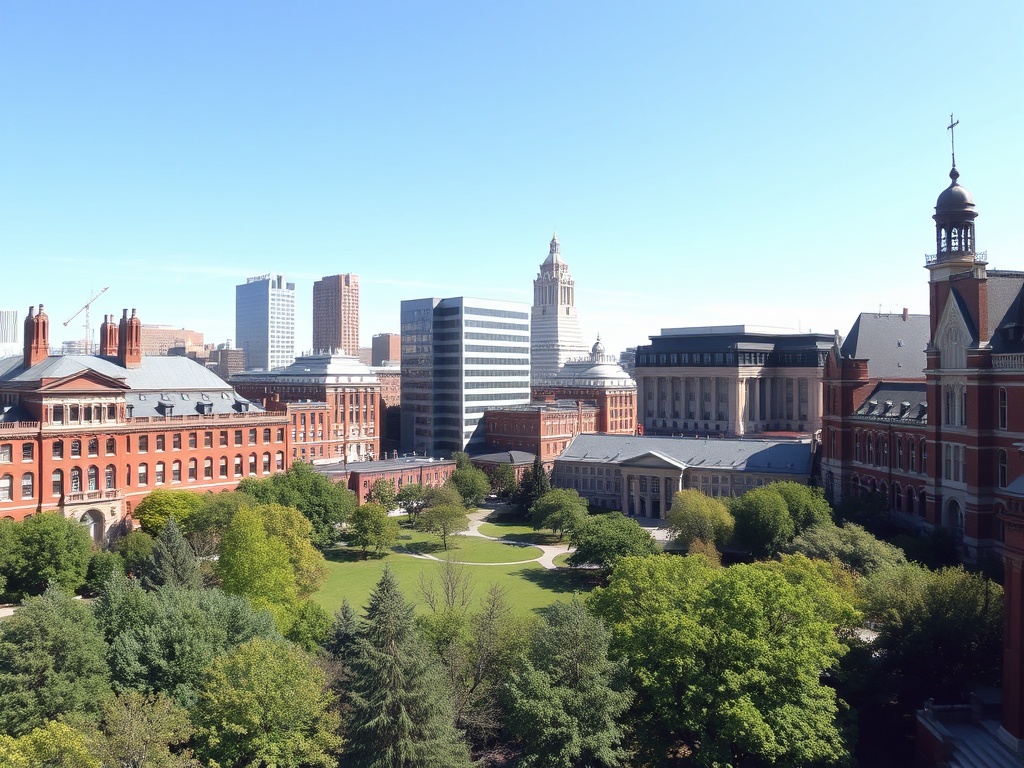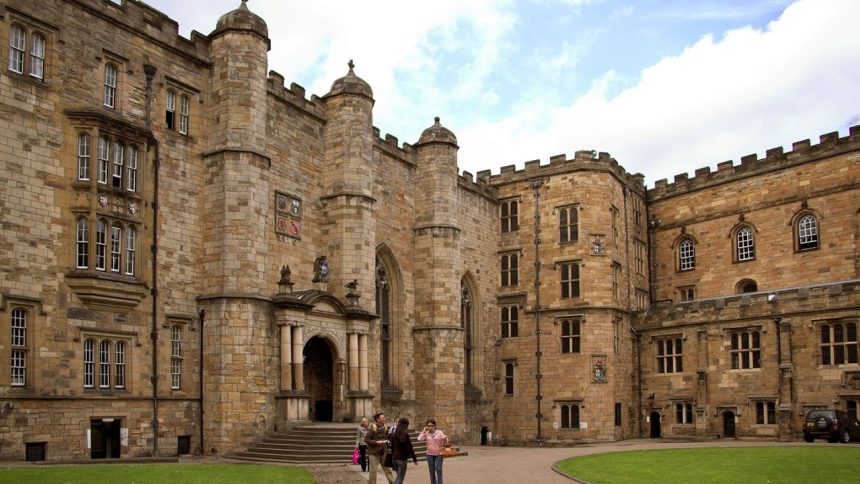For students who are about to study at Durham University, getting to know the cost of living at the university in advance and making reasonable budget plans is beneficial for them to better enjoy their university life. The average living expenses at Durham University are between £1,200 and £1,500 per month. We will cover all expenses from accommodation fees, tuition fees to daily expenses (such as food, transportation and utilities), and provide detailed data sheets and practical money-saving tips to help you manage your finances effectively.
Cost of Living in Durham University: A Monthly Overview
| Cost Types | Estimated Monthly Expenditure | Notes |
|---|---|---|
| Accommodation (Core) | £450 – £850 | College accommodation fees usually include Catering or facility costs. Off-campus rental fees are relatively low but you need to cover your own bills. |
| Utility Bill (Off-campus) | £80 – £150 | Water, electricity, gas, Internet and TV licenses (if required) are included. |
| Food (not from the college | £200 – £300 | The budget for self-cooking depends on the frequency of cooking and the choice of supermarket. |
| Transportation (Local) | £20 – £80 | Mainly rely on walking or local buses. Durham University is relatively compact and has lower transportation costs. |
| Study materials | £30 – £50 | Books, stationery, printing, etc. |
| Social/Entertainment | £100 – £200 | College social activities, club expenses, outings, etc. |
| Total (estimated) | £880 – £1630 | Please note: This budget does not include tuition fees and depends on your accommodation options and personal lifestyle. |
Durham University is located in the North East of England and has a relatively low cost of living, although exact expenses vary depending on individual lifestyles and accommodation choices. In 2025, the cost of living at Durham University for a student per year is around £18,000-£25,000+. A student’s annual living costs typically include accommodation, food, transport, textbooks and entertainment. Besides, it is estimated that the total tuition living costs are around £20,000 a year.
Cost of Durham University Accommodation
For Durham University students, renting a single-bedroom flat among the accommodation in Durham in the city centre typically costs anywhere between £500 – £750 per month. For those looking for a more budget-friendly option, shared accommodation such as student housing or flat shares can range between £300 – £500 per person per month. On the more luxurious end, a 3-bedroom house in a prime location can cost upwards of £1,200 per month.
College Accommodation versus Off-Campus Rental
Durham University’s unique College system is the main factor influencing its accommodation costs. Understanding the differences between the two is crucial for formulating a budget.
College Accommodation
The greatest advantage of college accommodation lies in its convenience, safety and the “all-inclusive” living experience. Many colleges offer Catered services, and the cost already includes bills for meals, water, electricity, gas and Internet. This makes budget planning simpler and can greatly enhance students’ sense of community belonging and social experience. Although the total cost of college accommodation (especially the meal package type) seems higher, it eliminates the trouble for students to deal with separate bills and meals, making it the first choice for international freshmen. However, room options are limited and must follow the specific regulations of the college.
Private Housing
After the end of their freshman year, most students choose to rent private houses in Durham or its surrounding areas (such as Nevilles Cross, Gilesgate). The advantages of renting a house off campus are lower basic rent and greater freedom. Generally, the monthly rent for off-campus housing may be 15% to 30% lower than the non-meal fees of the college. However, students must be aware that off-campus rentals are usually “Self-Catered”, and you need to budget an additional £80 – £150 for water, electricity, gas and Internet fees. In addition, you need to manage the lease by yourself, pay the deposit, and bear the risks of furniture and maintenance.
Utility Bill Cost for Durham Uni Students
When renting private accommodation near Durham University, a significant part of your monthly budget will be allocated to utility bills, unless you are in an all-inclusive property. These costs are variable and depend heavily on your usage, the energy efficiency of the property, and the number of roommates you share with. For the 2025/26 academic year, students should budget approximately £80 to £150 per person per month for combined utilities.
- Electricity & Gas: This is the largest component, typically ranging from £70-£100 per month for a shared house. Costs can rise significantly during the colder winter months (November to February).
- Water: Water bills in the UK are generally stable, averaging around £25-£40 per household per month, which is then split among tenants.
- Internet (Wi-Fi): A reliable broadband connection is essential for studies. Standard fibre optic packages cost between £25-£40 per month, shared among flatmates.
Pro Tip: When searching for accommodation on platforms like uhomes.com, use the “Bills Included” filter to find properties where these costs are fixed within your rent, making budgeting much simpler and protecting you from price fluctuations.
Cost of Food in Durham University
In Durham, the cost of food is generally reasonable, with a wide range of options available to cater to various budgetary needs. From artisanal cafes offering delectable pastries and locally roasted coffee to family-run restaurants serving hearty, traditional meals, one can expect to pay around £7-£10 for breakfast, £10-£15 for lunch, and anywhere from £15-£30 for dinner, excluding drinks. For those on a tighter budget, street food markets and food stalls provide an opportunity to enjoy diverse, quality meals for less. On the other end of the spectrum, there are also upscale dining establishments with higher costs, but the culinary experience is unparalleled.
Cost of Transportation around Durham University
Whether you choose public buses or taxis or opt for bike rentals, each mode of transport is priced competitively, making it accessible for everyone. The city has invested in creating a well-connected public transport network, ensuring visitors and locals can easily navigate the city without incurring heavy costs.
| Transport Type | Average Cost | Notes |
|---|---|---|
| Arriva Student Bus Ticket | £1.50 per day | Unlimited travel within the Durham District Zone with a valid campus card. |
| Weekly Bus Pass | £17 | For unlimited travel on most local bus services. |
| 16-25 Railcard | £30 per day | Provides 1/3 off train fares, essential for exploring the UK. |
| Train (Durham to Newcastle) | £6 – £9 (one way) | Ideal for day trips or connecting to a larger city. |
| E-scooter Rental | £1 unlock + £0.20/min | Convenient for short, quick journeys around the city. |
Living Costs of Durham University Students' Entertainment & Socialising
For a Durham University student, socialising and entertainment expenses cost £100 – £200 per month averagely. Some specific expenses of activities are listed as below:
- Pint of beer: £4 – £5
- Cinema ticket (student price): £5 – £7
- Meal at an inexpensive restaurant: £12 – £18
- College Formal Ticket: £10 – £20
- Gym Membership (University): ~£25 per month

Let’s Jump in the Cost of tuition fees at Durham University and the information of its current status.
2026 Durham University One-year Tuition Fees
For the 2026 academic year, Durham University’s one-year tuition fees are expected to be £9,535 for full-time UK undergraduate students.
Business: £35,000 for MBA at Durham University. £31,500 for MSc Accounting, MSc Finance.
Polytechnic specialisms: nearly £30,000. For example, for an MSc in Electronic Engineering, MSc in Civil Engineering, and MSc in Computational Science and Data Analytics, the tuition fee is not less than £28,000.
Humanities and Social Sciences specialisms: MA Education £21,500, MA TESOL and Applied Linguistics £22,900.
Latest Durham University Rankings
Is Durham a top 10 university?
Durham University is ranked 94th in the world in the QS World University Rankings 2026.
3th in the 2026 Times UK University Rankings.
Durham University has been focussing on subject development in the natural sciences in recent years. In the 2023 QS Subject Rankings, it was ranked 74th globally in the Natural Sciences, up 25 places from 2022. Our geology, earth sciences, and geophysics disciplines are firmly in the top 50 globally in the 2023 QS Subject Rankings, and physics, astronomy, and computer science have also made significant progress. The Departments of Computing and Mathematics and Physics have emphasized updating their hardware facilities in recent years, greatly enhancing students’ learning environment and laboratory equipment.
In addition, many of Durham’s undergraduate and master’s programmes offer exchange or internship opportunities, enriching students’ learning experience and providing a broad platform for them to pursue their interests. Innovation in the curriculum is also reflected in the Joint Honours Degrees. The cross-disciplinary content of the programme enables students to gain a more comprehensive knowledge, which is also reflected in their employment opportunities.
Durham University Job Prospects:
Employer Reputation has long been a strength of Durham University, ranked 50th in the world in this year’s rankings. This partly reflects the excellent employment prospects of Durham graduates and shows that the University has permanently attached great importance to developing students’ abilities in all aspects.
Durham University is committed to providing students with comprehensive and detailed career guidance and services. The University’s careers department organises regular career festivals to bring students into direct contact with the world’s leading employers in a wide range of industries. Various seminars and events provide students with a wealth of information on all aspects of the job search process, breaking down the information gap between current students and employers.
Students can also apply for one-on-one coaching. No matter how students select the desired position, write a CV, interview, or do other aspects, the school can provide students with professional and targeted services.
Is Durham Uni Hard to Get into?
Durham University, being one of the UK’s top institutions, has indeed a highly competitive admission process. The university’s commitment to academic excellence means it seeks students who demonstrate an enthusiasm for their chosen field, the intellectual ability to keep up with the rigours of their programme, and the initiative to impact the university community positively. However, it’s important to remember that while admissions may be competitive, your unique experiences, perspectives, and academic passion can make you a strong candidate. Getting into such a prestigious institution may be challenging but undeniably rewarding.

TOP 5 Cost-Saving Strategies for Living Expenses at Durham University
- Make smart use of the college cafeteria: If you choose college accommodation but not meals included, please keep a close eye on the meal offers or special meal days provided by the college. The college cafeteria is usually much cheaper than dining out and is one of the most efficient ways to save money.
- Master Local shopping skills: The prices at Tesco Express or Sainsbury’s Local in Durham City centre are relatively high. Local students usually go to Aldi or Lidl, which are more affordable, for bulk shopping to save on food expenses. In addition, going to the supermarket in the evening to buy “discounted items (Yellow Stickers)” is also a common money-saving trick used by local students.
- Make full use of the walking advantage: The university campus and main living areas in Durham city are relatively compact, and walking is the main mode of transportation. Unless you live in a far area, you can completely save on public transportation costs. If you need to travel, give priority to choosing student-discounted bicycles or shared mobility services.
- Buying second-hand textbooks and senior experience: The cost of textbooks is a major expense that is often overlooked. Purchase second-hand textbooks through the second-hand book platforms of the college or school or student club groups. Graduating seniors usually sell or transfer their study materials at a low price.
- Actively participate in “free” college activities: The college system offers a wide range of free or low-cost social events, lectures and sports facilities. Rather than spending money outside, it’s better to actively participate in the built-in resources of these colleges, which saves money and helps you integrate into university life quickly.
FAQ
What is the cost of living for Durham University?
The Average cost of living for a Durham University student ranges from £1,200 to £1,500 per month. However, the specific amount may depends on your preferences and lifestyles.
Is it cheaper to live in Durham University's college accommodation or private housing?
It varies. First-year students often find college accommodation convenient as it usually includes bills and sometimes meals (catered options). In the second and third years, private housing shared with friends can be more affordable, especially if you choose a property in areas like Gilesgate or Framwellgate Moor.
How much does Durham Uni cost?
For the new semester, the tuition fee of Durham University is £9,535 per year. Durham University will charge home rate tuition fees up to the maximum allowed by the UK Government.








